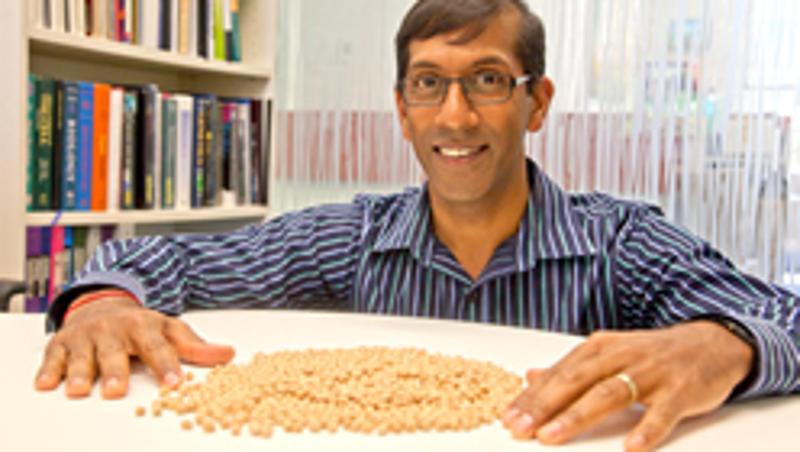
A research program now underway at QUT aims to develop new drought and disease resistant crop varieties that could help Australia play a large role in addressing the world's looming food crisis.
Centre for Tropical Crops and Biocommodities deputy director, Professor Sagadevan Mundree, said new varieties of pulses such as chickpeas and mung beans would see Australia able to farm land that was currently considered unsuitable for production.
He said as the world's population increased current dependence on animal protein would not be sustainable and pulses, which were an important source of protein, would fill the gap.
"The world needs to grow more pulses and our research will result in the development of new varieties that will enable Australia to expand greatly within this market," he said.
He said QUT research involved a five pillar strategy to meet the production challenge.
1.Validate a novel chemical pre-treatment to improve abiotic stress tolerance in chickpea and mung bean for example by testing a natural low-cost compound that increases fine-root development and stress tolerance.
2.Generate elite transgenic chickpea lines to enhance drought tolerance and resistance to the disease Botrytis cinerea.
3.Biofortify chickpeas for enhanced iron content to improve nutrition and value.
4. Identify novel traits for stress tolerance in mung bean and chickpea to make pulse breeding easier and more effective.
5.Perform modelling studies based on an already highly successful sorghum program to enhance chickpea and mung bean production, as well as identifying advances in genetics and agronomy and the best genetic types for specific environments.
Professor Mundree said Australia was the world's number one exporter of chickpeas with 90 per cent of the Australian crop exported to 40 countries.
"The chickpea industry in Australia is currently worth more than $350 million with the mung bean industry worth $60 - 70 million," he said.
"Most pulse production occurs in Queensland and New South Wales and there is great scope for Australia to capitalise on the opportunities a forecast world food shortage would provide."
He said the world produced 60 million tonnes of pulses per year and while India, the world's largest producer, consumed 35 per cent of this, the nation still imported approximately five million tonnes of pulses per annum.
"As income levels rise, particularly within the Asian region there will be unprecedented demand for protein and this protein void will be filled by pulses rather than livestock."
The research has attracted $4.8 million from the Queensland Government.
RELATED STORIES
QUT gives Queensland a protein boost
Accolades for 73 years of sugar innovation
Media contact: Rose Trapnell, QUT media officer, 07 3138 2361 or 0407 585 901


